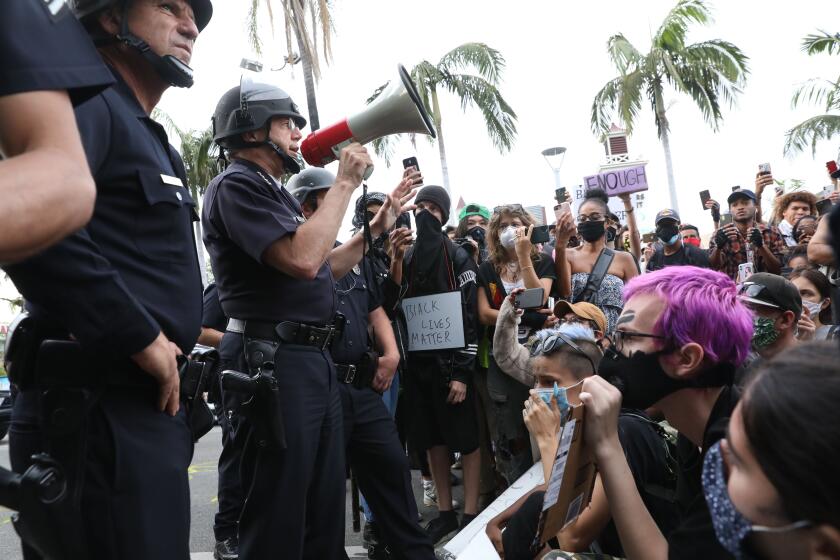Comcast unveils $100-million social justice plan amid George Floyd protests
Cable giant Comcast Corp. unveiled a $100-million plan to support social justice and equality, making it the latest major media and entertainment company to pledge financial action amid nationwide protests against police brutality.
Comcast Chief Executive Brian Roberts on Monday said in a blog post that the Philadelphia media giant would set aside $75 million in cash and $25 million in advertising inventory to fight injustice against “any race, ethnicity, gender identity, sexual orientation or ability.” The funds and ad space will be distributed over the next three years.
Part of the plan is to partner with and provide grants to organizations such as the National Urban League, the Equal Justice Initiative, the NAACP, the National Action Network and the Community Justice Action Fund.
“We know that Comcast alone can’t remedy this complex issue. But you have my commitment that our company will try to play an integral role in driving lasting reform,” Roberts said in the post. “Together, we hope to help create a more equitable, just and inclusive society.”
The plan comes two weeks after the killing of George Floyd that sparked days of protests in cities, including Los Angeles, calling for an end to systemic racism in policing. Floyd died in police custody in Minneapolis on May 25, after a white police officer knelt on his neck for eight minutes and 46 seconds.
Since then, a chorus of media and entertainment companies, including WarnerMedia, Netflix and CBS, have voiced their support for the Black Lives Matter movement, which has been amplified by the protests. But those statements have been met with calls for corporations to match their words with money and action.
Entertainment companies and other brands have tried to show their support for protesters. But some have faced a backlash.
In response, Warner Music Group and Sony Music Group last week each established $100-million funds for social justice and antiracist initiatives. Fellow music label Universal Music Group announced an initial response that includes a $25-million fund and establishes a task force to accelerate the company’s efforts in inclusion and social justice.
The promises by the major record labels followed statements by multiple prominent artists, including the Weeknd, who said the music industry’s “Blackout Tuesday” initiative was not enough. The Weeknd called on labels to step up with their pocket books. Rapper Lil Nas X suggested on Twitter that advocates post “donation and petitions links on instagram all at the same time instead of pitch black images.”
Some other entertainment companies have promised financial support for anti-racist causes. Walt Disney Co. last week announced $5 million for social justice groups, including an initial $2 million for the NAACP. On Friday, ViacomCBS said it would contribute $5 million to the NAACP Legal Defense Fund, Amnesty International and National Bail Out, among other organizations.
Beside grants to nonprofits, Comcast promised to accelerate its diversity training and recruiting initiatives. The company also said it would use its media platform to support black voices and black stories. NBC News will host a series of televised town halls. The company also promised to address the disproportionate lack of internet access for low-income communities, and to allocate funds supporting businesses owned by people of color.
The protests against police violence come as the media industry continues to grapple with the effects of the coronavirus shutdowns, which have hobbled movies studios, theme parks and advertising revenue.
Comcast’s media arm NBCUniversal last month announced pay cuts for executives. Employees at the company’s theme parks, shuttered since mid-March, have been furloughed. Its Los Angeles-based Universal Pictures studio has delayed the release of new movies because theaters are closed.
More to Read
Inside the business of entertainment
The Wide Shot brings you news, analysis and insights on everything from streaming wars to production — and what it all means for the future.
You may occasionally receive promotional content from the Los Angeles Times.












